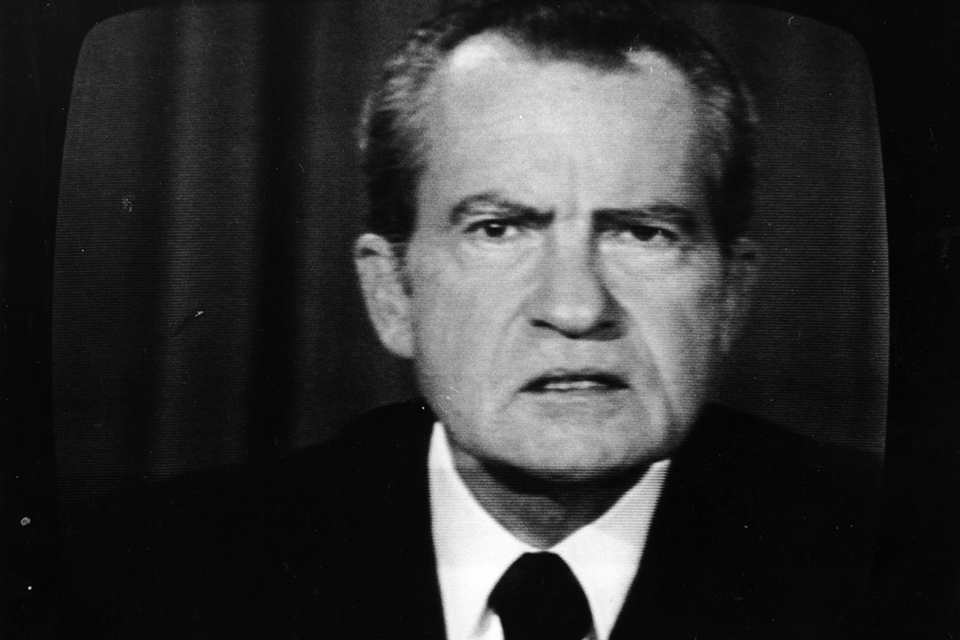A reader intent on plumbing recent American history in hopes of bringing to the surface explanations for the nation’s veer toward the paranoiac and its accompanying distrust of government will find much to consider in Jefferson Morley’s “Scorpions’ Dance: The President, the Spymaster, and Watergate.” This darkly energetic ramble, while strong on the conspiracist outlook, is tempered by judicious research and sprightly writing. The poisonous arachnids of the title are Richards Nixon and Helms.
Morley, a long-time Washington-based author and journalist, employs the president’s and the Central Intelligence Agency director’s intertwining, sometimes collaborative, sometimes conflicting paths as a flexible armature on which to hang a compelling if periodically dizzying tale. Morley’s palette is vivid and his canvas large; he incorporates John F. Kennedy’s assassination, Cold War policy and politics, campus unrest, national security, CIA overreach, Vietnam, Watergate and what all else into an impasto anticipating the emergence of the ”Deep State” as a fixation among many Americans.
Along with marquee performers Nixon and Helms and the overarching presence of the subtitular scandal, the book’s plots — literal and literary — and dramatis personae engage a host of household names from half a century-plus back: Ngo Dinh Diem, John McCone, E. Howard Hunt, Bernard Barker, G. Gordon Liddy, Laos, James McCord, Sam Ervin, the Bay of Pigs, Lucien Conein, Fred Thompson, the Berlin Wall, Richard-Ben-Veniste, Robert Maheu, Jeb Magruder, Lee Harvey Oswald, John Dean, the missile gap, Salvador Allende, Daniel Ellsberg, Patrick Grey, Judge John Sirica, Phyllis McGuire, Vernon Walters, Sam Giancana, Fidel Castro, Johnny Roselli and many more. Just as the cast defies categorization, the story line defies summarization but Morley’s kinetic narrative, intermittently slowed by gaggles of acronyms and code names — AMBIDDY, CREEP, AMLASH, COINTELPRO, LINGUAL, to name a few — plunges the reader into events decades in the American past yet ever present as echoes in America’s current troubled governance.
Adherents of mainstream historical analysis may groan and connoisseurs of conspiracy theory may cheer at Morley’s gravely muttered inferences and not entirely speculative conclusions, but his deft and highly readable explication of his protagonists’ careers and contexts and his scrutiny of machinations involving their extraordinarily interlaced networks of supporting characters give “Scorpions’ Dance” a solid, driving, and sometimes demonic beat.
historynet magazines
Our 9 best-selling history titles feature in-depth storytelling and iconic imagery to engage and inform on the people, the wars, and the events that shaped America and the world.


